Inside the ‘Pizza Church’ of Amman
A restaurant tucked inside a house of worship trains Iraqi Christian refugees for jobs abroad.
It isn’t often that a church greets its parishioners with smells of fresh basil and sizzling cheese. Yet inside a tree-lined courtyard in Amman, Jordan, that’s exactly what happens. Over the last six years, St. Joseph Parish, a Catholic church in the historic Jabal Amman neighborhood, has earned an entirely new moniker: the “pizza church.”
Passersby and locals have flocked to St. Joseph’s since October 2017, when a spur of interest by international aid organizations helped the church convert an old kitchen in its basement into a pizzeria. That laid the groundwork for what is now known as Mar Yousef’s Pizza, an Italian restaurant whose guiding mission is to train Iraqi refugees in culinary arts.
The pizza church provides a rare service to Amman’s immigrant community. Jordan is a refuge for many people fleeing violence elsewhere in the region and the city itself has been a gathering point for foreigners coming to study, work, and pray in the Holy Land or the greater Middle East. By helping familiarize its staff with international tastes, St. Joseph’s helps prepare them for emigration in ways that other make-work programs for refugees may not.

St. Joseph’s Parish was founded in Jabal Amman by German Christians who came to the city in 1959. But when Father Mario Cornioli, one of the leaders of St. Joseph’s, first came up with the idea of a restaurant in 2017, it was for an entirely different group of immigrants. The Islamic State was devastating large swaths of Iraq, and Iraqi Christians streamed into Jordan to seek refuge.
“Yohanna”* is an Iraqi from Mosul who works at Mar Yousef’s. Although reluctant to share details, Yohanna says he left Iraq in 2018 due to the instability there. “There’s no future [in Iraq], no future for my children,” he explains.
Most Iraqi Christians are part of an Aramaic-speaking ethnic group known as Assyrians, Chaldeans, or Syriacs. Already a marginalized minority, they suffered immensely during the Sunni–Shi’a violence after the Iraq War. During its rise to power, the Islamic State tried to wipe out the non-Sunni minorities left in Iraq, in a campaign that multiple governments have labeled a genocide.
As a result, most of the community now lives abroad, particularly in Canada, Australia, and the United States. Father Zaid Habbaba, a pastor for the Chaldean Catholic Church in Jordan. Habbaba reckons that there are now more Chaldeans in Michigan than Christians in all of Iraq.

After the Trump administration made immigration nearly impossible for Middle Eastern refugees beginning in 2017, many Chaldeans set their sights on Windsor, Canada, across the border from the Chaldean community in Detroit. Others are aiming to join the large Iraqi Christian diaspora in Australia; Yohanna, for example, has relatives there.
Jordan is an important way station for Iraqi Christians fleeing their homeland. Because the country is coping with a larger Syrian refugee crisis, Iraqis have found themselves marginalized in an already-shrinking pool of humanitarian aid. And most are not legally allowed to find jobs while they wait to emigrate.
This isn’t the first time a local organization trained refugees for culinary careers. In 2015, the global Catholic organization Caritas Internationalis set up a free kitchen at the Annunciation Church, in the historic Jabal Luweibdeh neighborhood of Amman, staffed by Iraqi Christians. In addition to helping the local poor, the “Mercy Restaurant” provided refugees with steady jobs.

Cornioli was thinking even bigger. His nonprofit organization, Associazione Habibi, set up a full-fledged Italian dining experience at Mar Yousef’s.
While Father Zaid Habbaba is not affiliated with Mar Yousef’s, members of his congregation work there. “The idea wasn’t just to give them work, but to teach them to be chefs,” he says. “They’ll have experience when they go abroad.” The staff, which also receive training to be servers and management, include not only Chaldean Catholics, but also members of the other Iraqi churches.
Inside the kitchen, cooks utilize the industrial-grade appliances, pasta presses, and a brick pizza oven to craft an array of dishes, bake fresh bread, and even make their own ricotta and pecorino cheese. Outside, busy waiters buzz about.
Of course, the stars of the menu are the pizzas, which are similar to thick-crust Detroit pies and served Sicilian style. The restaurant also offers Italian classics such as caprese with chile de árbol–infused oil, crunchy focaccia, and mushroom tagliatelle. For dessert, Mar Yousef’s churns its own ice cream, including limonana (lemon and mint) sorbet, a Middle Eastern complement to the Italian menu.

But Associazione Habibi’s ambitions reach further than pizzas. The Italian government has helped fund Associazione Habibi through its international development agency, and the Italian Trade Association even flew in a pair of Italian chefs to help lead cooking classes for Mar Yousef’s staff in 2019.
Yohanna says that the training at Mar Yousef’s has helped him immensely, especially his English skills. “I started out as a waiter, now I’m managing things,” he says.
Mar Yousef’s is not a public pizzeria that takes walk-in customers. Officially, it’s a dining club open to members and friends of the church. That said, it just takes a phone call to the restaurant to get a reservation, and one does not have to profess the Catholic faith. Once at the church door, a host welcomes guests of all beliefs into a cozy, string light–studded room inside the church, where flower arrangements frame comfortable Italian decor.

In the summer, there’s outdoor tables in the church courtyard. And in the winter—believe it or not, it can snow in Amman—visitors opt to dine inside or in the courtyard, under a plastic enclosure warmed by heat lamps.
Associazione Habibi’s website points out that the “pizza church” is part of a broader project, which aims to offer vocational training to refugees. On the floor above the pizzeria, Atelier Rafedìn, another Associazione Habibi project, markets textiles made by refugee women.
Providing work for a few people in the diaspora can go a long way. Alongside Mar Yousef’s, Habbaba points to broader support networks in Jordan’s Iraqi diaspora. The few members of the community who have an income, he says, often support other families in need, with the church acting as a “linchpin” between them.
Habbaba begins to explain in Arabic, searching for a phrase to describe it. Then he settles on an English word: “solidarity.”
* Yohanna is not his real name; he asked for his name to be changed for the article.
Gastro Obscura covers the world’s most wondrous food and drink.
Sign up for our regular newsletter.



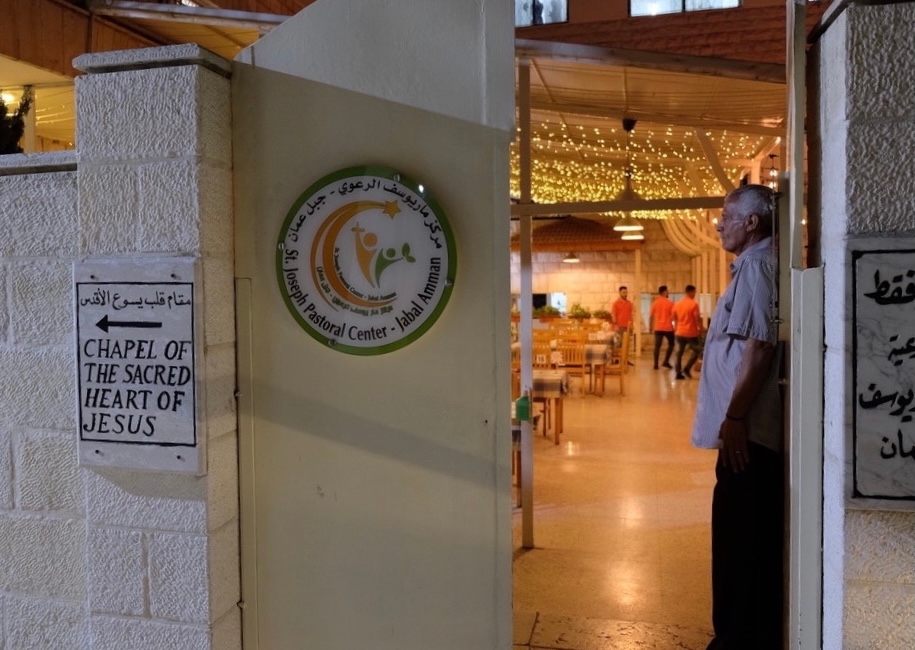
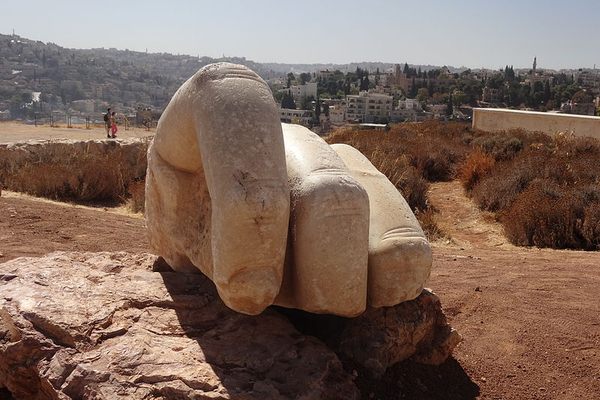


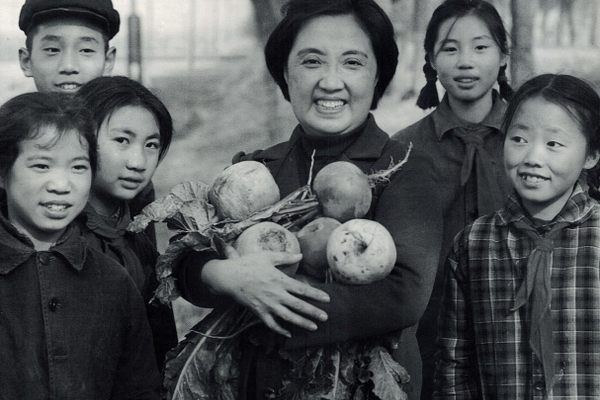
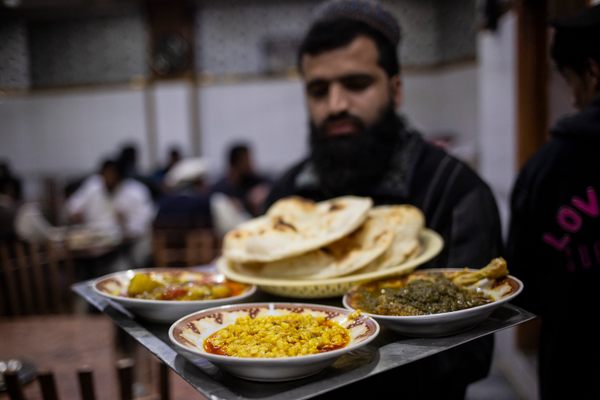
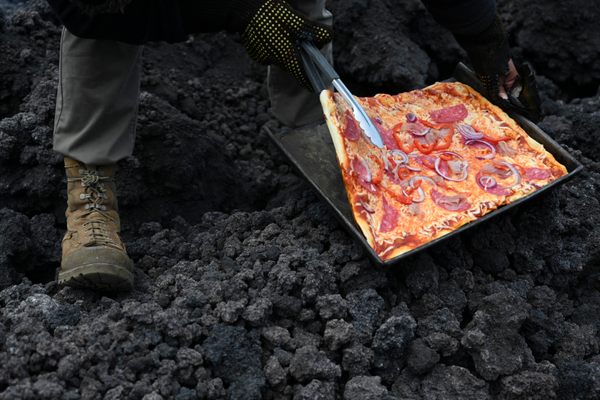

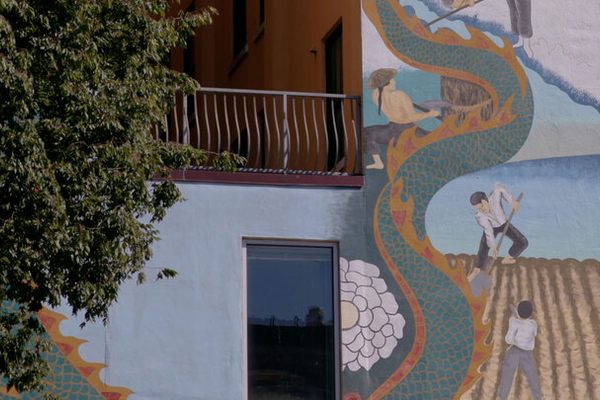










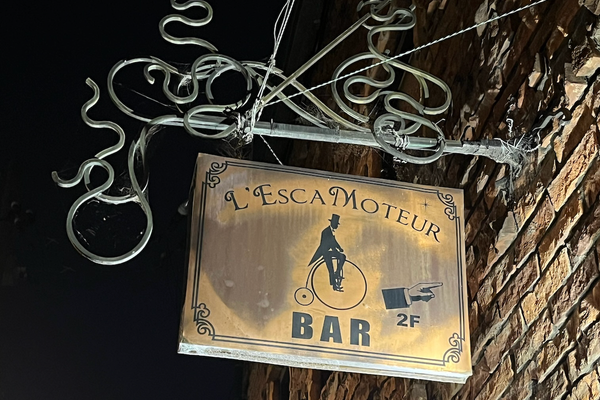





Follow us on Twitter to get the latest on the world's hidden wonders.
Like us on Facebook to get the latest on the world's hidden wonders.
Follow us on Twitter Like us on Facebook